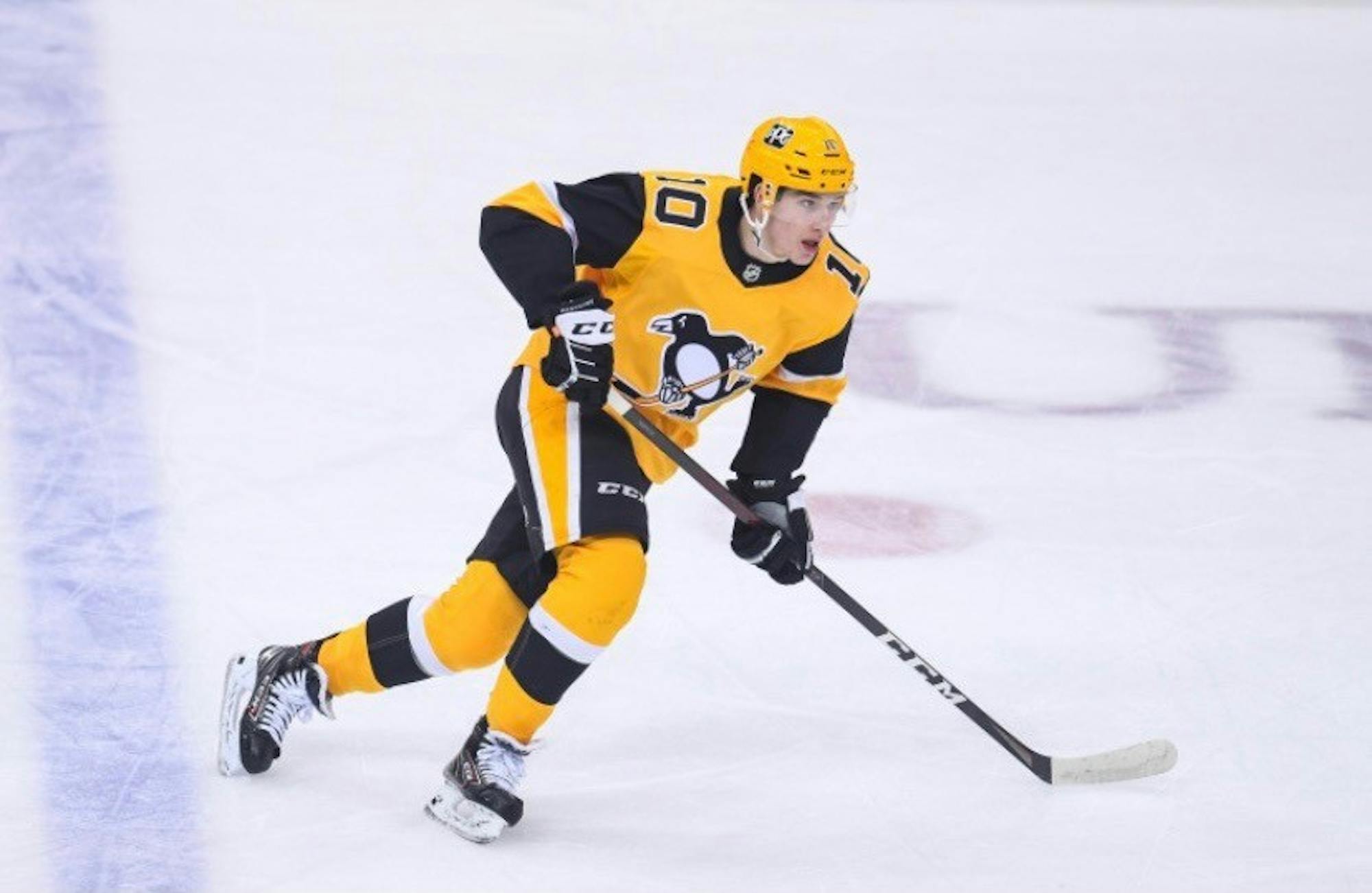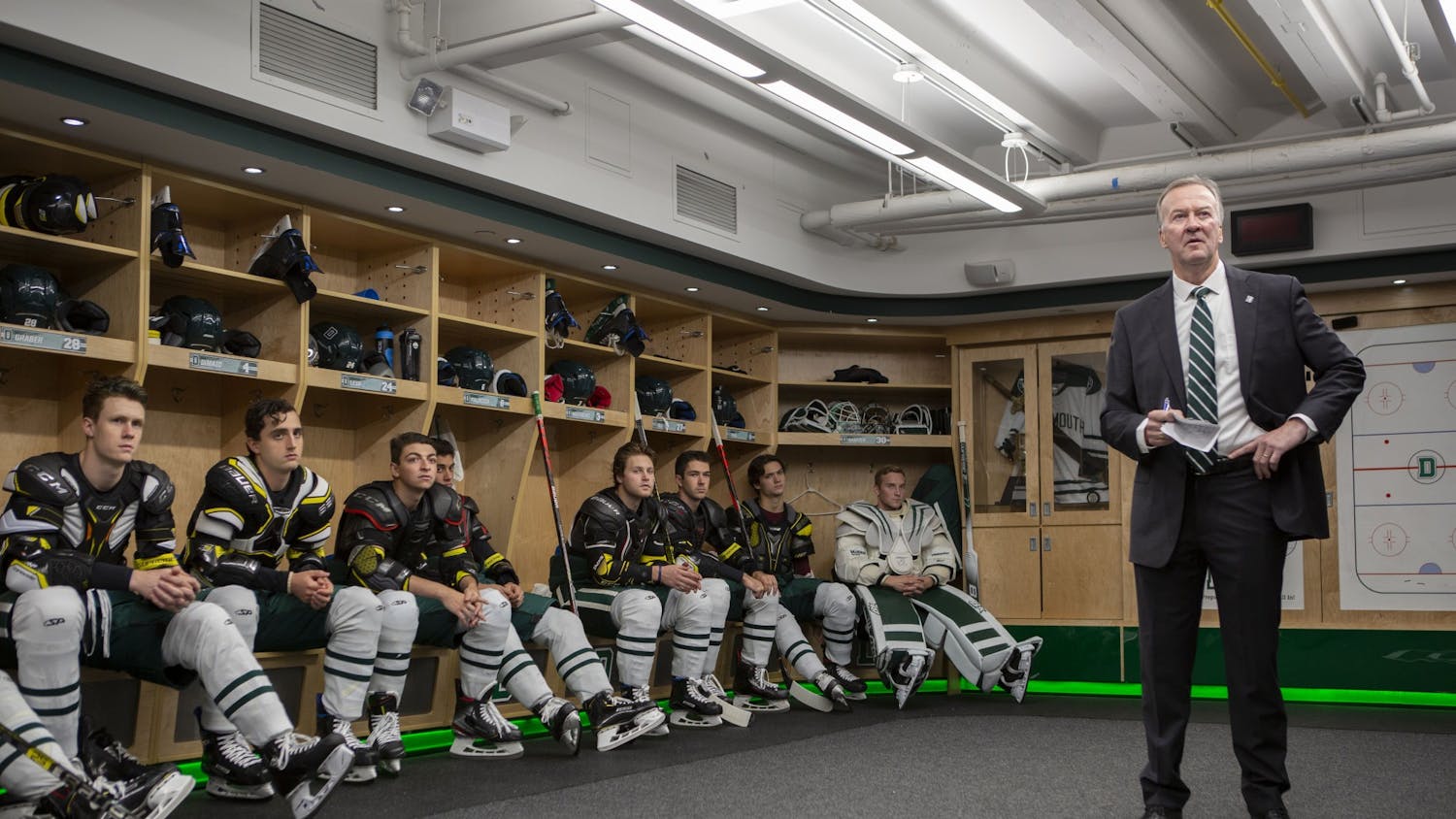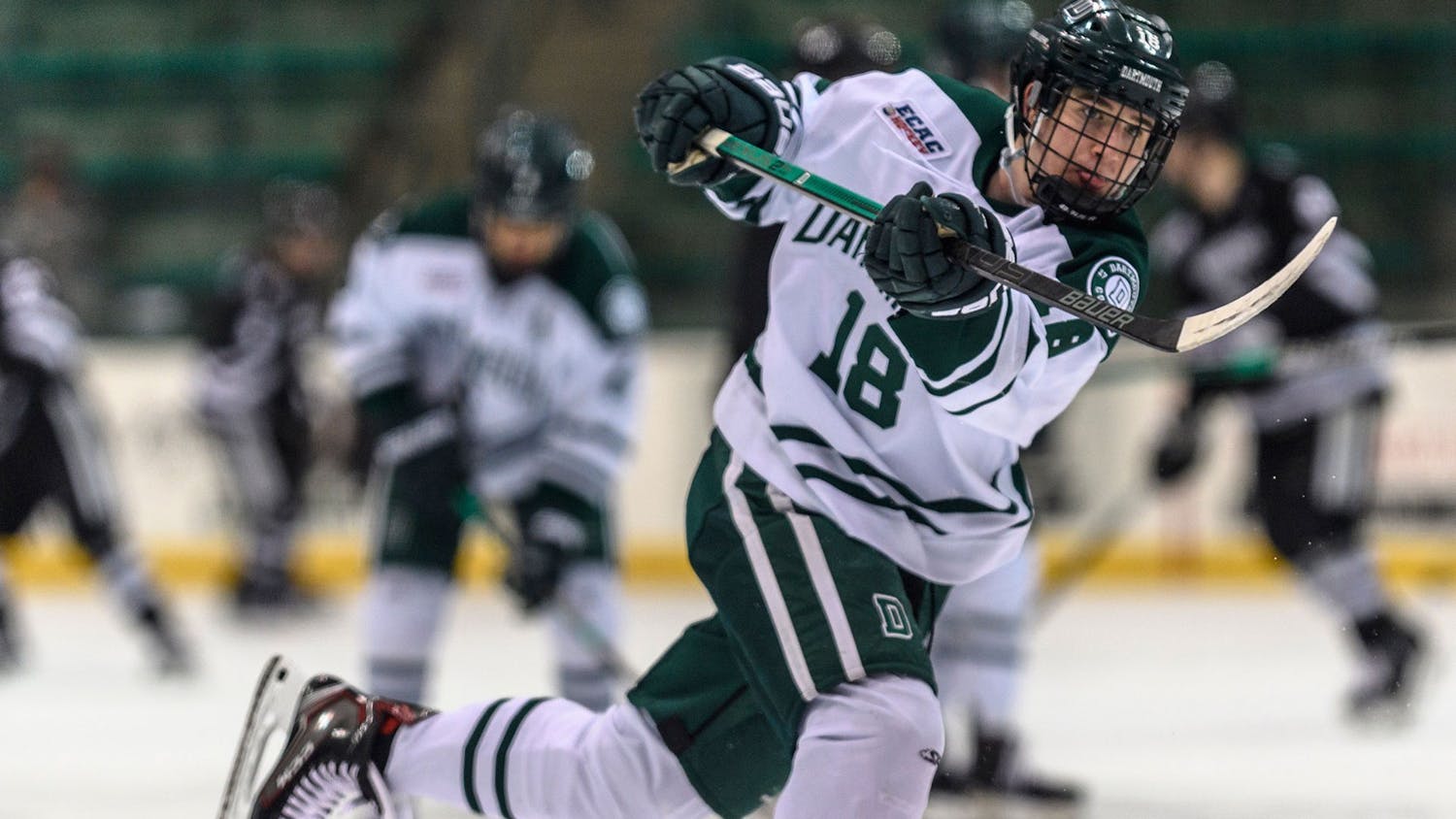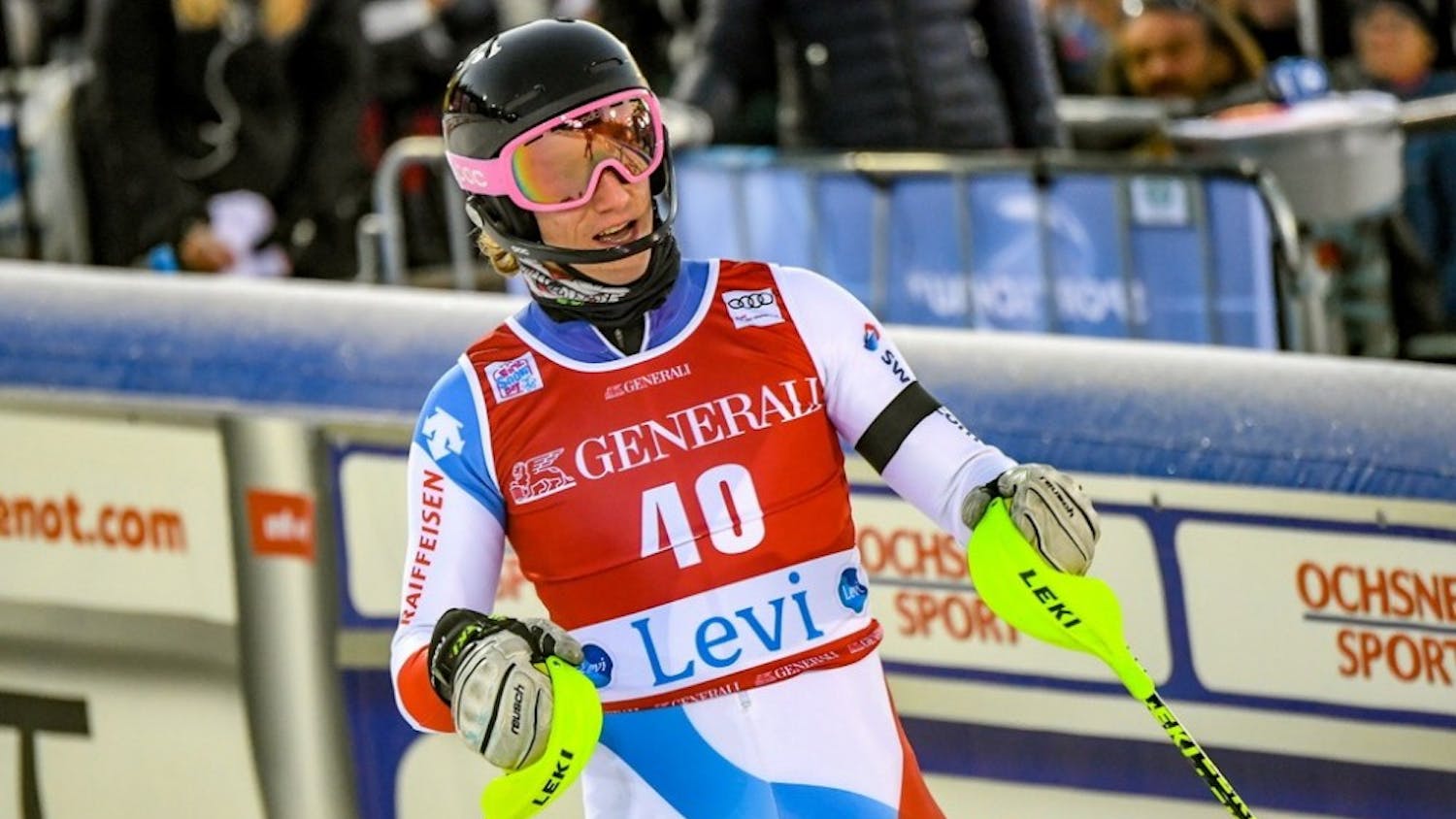Just two weeks after his promotion to the Pittsburgh Penguins taxi squad in January, Drew O’Connor ’22 made his National Hockey League debut against the Boston Bruins. Though the Penguins fell in a 3-2 loss, O’Connor contributed an assist on the first goal of the game, marking his first career point in his first career appearance.
“The whole team was just ecstatic when we found out that he was in the lineup that night,” men’s hockey team member Brendan Demler ’21 said. “It was a moment of pride for our program. It’s been a long time since we’ve had a guy make his NHL debut from Dartmouth, and it’s a really big deal.”
O’Connor has since appeared in 10 games for the Penguins, as well as six for their minor league American Hockey League affiliate, Wilkes-Barre Scranton, where he has tallied three goals and two assists. O’Connor, who has been frequently shuttled between Pittsburgh and Wilkes-Barre due to injuries on the NHL squad, has been exposed to various levels of play and has continued to work on his game.
“Right now, it’s just important for me to keep developing,” O’Connor said. “I think that whether it’s in Pittsburgh or in Wilkes-Barre, I’m getting some good opportunities in games. So I think just going to practice every day with the intention of getting better, improving and then hopefully things will start to click.”
Men’s hockey head coach Reid Cashman, who spent two seasons as an assistant coach in the NHL, said that the transition to the NHL as a young player can be difficult. While players coming out of college no longer have to balance hockey with their academics and the rest of their college experience, Cashman noted that these student-athletes go from playing against teams with rosters full of players similar in age, size and speed to playing against professionals with years of experience.
“He got an opportunity, now he’s back in the minors, and so he has to go out there and be really good and learn how to be a pro ... but it’s hard out of the gate,” Cashman said.
Cashman added that the extra minutes of playing time O’Connor has been getting recently will help him continue to mature his game.
O’Connor credits the Dartmouth coaching staff and team with helping him prepare both mentally and physically to play at the professional level. Though he never played under Cashman, O’Connor was coached under former head coach Bob Gaudet ’81, who also emphasized consistency in game play.
“I think just one of the things that our coaches always talked about was just being consistent,” O’Connor said. “The top players are the guys that are going out there and being consistent every game, and I think being able to bring that level of consistency is ... something that Dartmouth helped me a lot with.”
In playing for the Penguins, O’Connor follows in the footsteps of Lee Stempniak ’05, Ben Lovejoy ’06, Tanner Glass ’07 and Nick Johnson ’08, all of whom suited up for Pittsburgh during their careers. O’Connor is the first Dartmouth hockey player since Matt Lindblad ’14 to make an NHL appearance.
“It takes a special player to get to go to the NHL, no matter what program you come from,” Cashman said.
Dartmouth has the resources to help players “reach their full potential,” Cashman said, adding that “if guys want to play pro hockey when they're done with Dartmouth, we put them in a position to be able to do that.”
Demler echoed Cashman’s sentiments, emphasizing the importance of dedication and passion in players for the future of the program.
“Those are the kind of players that we want in this program,” Demler said. “We want high level players that have pro hockey aspirations. And just creating that culture where we're going to excel both on the ice and in the classroom, we can make it [so that making] the NHL is attainable, and [O’Connor’s] just setting that example.”




